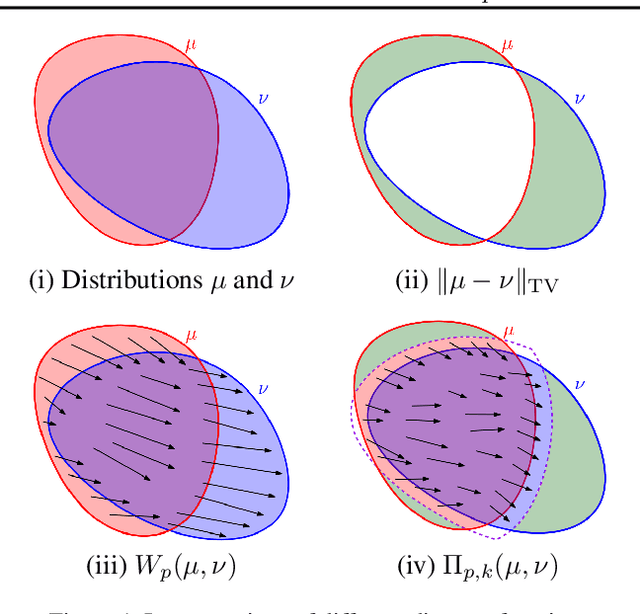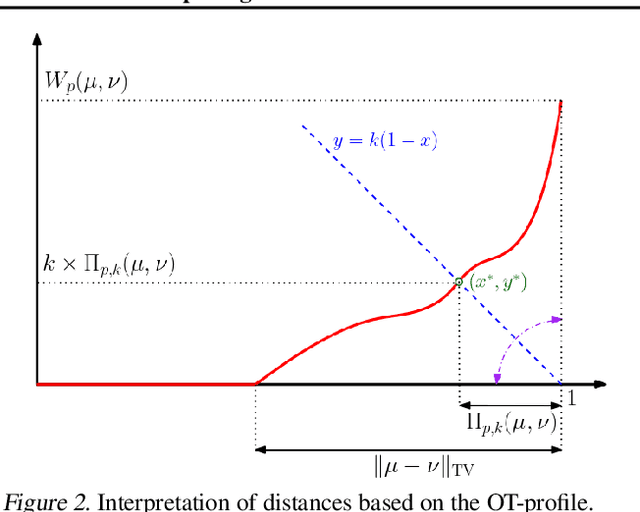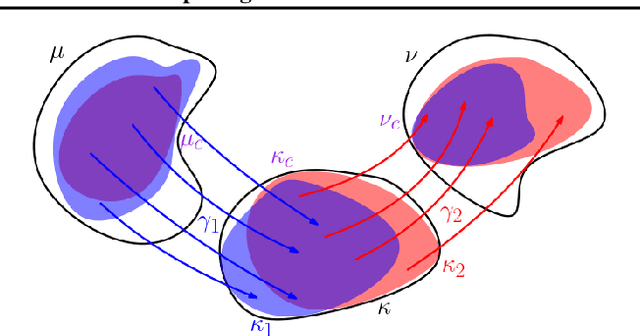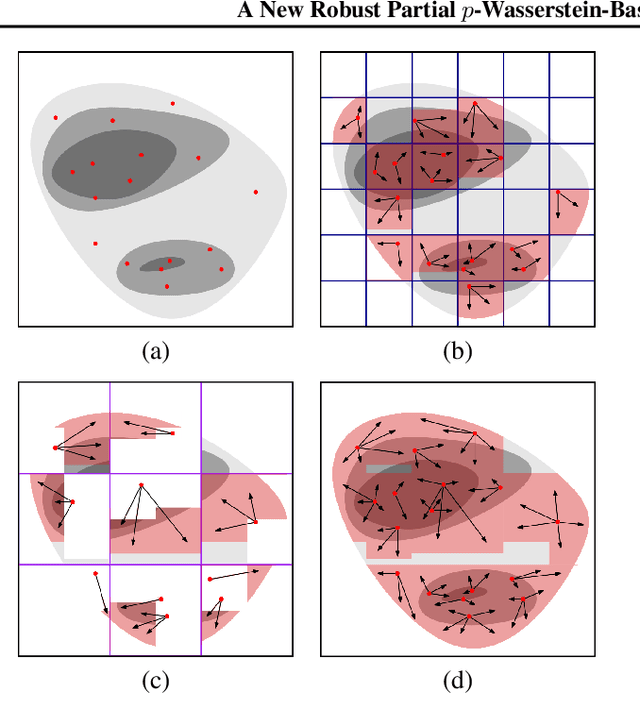A New Robust Partial $p$-Wasserstein-Based Metric for Comparing Distributions
Paper and Code
May 06, 2024



The $2$-Wasserstein distance is sensitive to minor geometric differences between distributions, making it a very powerful dissimilarity metric. However, due to this sensitivity, a small outlier mass can also cause a significant increase in the $2$-Wasserstein distance between two similar distributions. Similarly, sampling discrepancy can cause the empirical $2$-Wasserstein distance on $n$ samples in $\mathbb{R}^2$ to converge to the true distance at a rate of $n^{-1/4}$, which is significantly slower than the rate of $n^{-1/2}$ for $1$-Wasserstein distance. We introduce a new family of distances parameterized by $k \ge 0$, called $k$-RPW, that is based on computing the partial $2$-Wasserstein distance. We show that (1) $k$-RPW satisfies the metric properties, (2) $k$-RPW is robust to small outlier mass while retaining the sensitivity of $2$-Wasserstein distance to minor geometric differences, and (3) when $k$ is a constant, $k$-RPW distance between empirical distributions on $n$ samples in $\mathbb{R}^2$ converges to the true distance at a rate of $n^{-1/3}$, which is faster than the convergence rate of $n^{-1/4}$ for the $2$-Wasserstein distance. Using the partial $p$-Wasserstein distance, we extend our distance to any $p \in [1,\infty]$. By setting parameters $k$ or $p$ appropriately, we can reduce our distance to the total variation, $p$-Wasserstein, and the L\'evy-Prokhorov distances. Experiments show that our distance function achieves higher accuracy in comparison to the $1$-Wasserstein, $2$-Wasserstein, and TV distances for image retrieval tasks on noisy real-world data sets.
 Add to Chrome
Add to Chrome Add to Firefox
Add to Firefox Add to Edge
Add to Edge